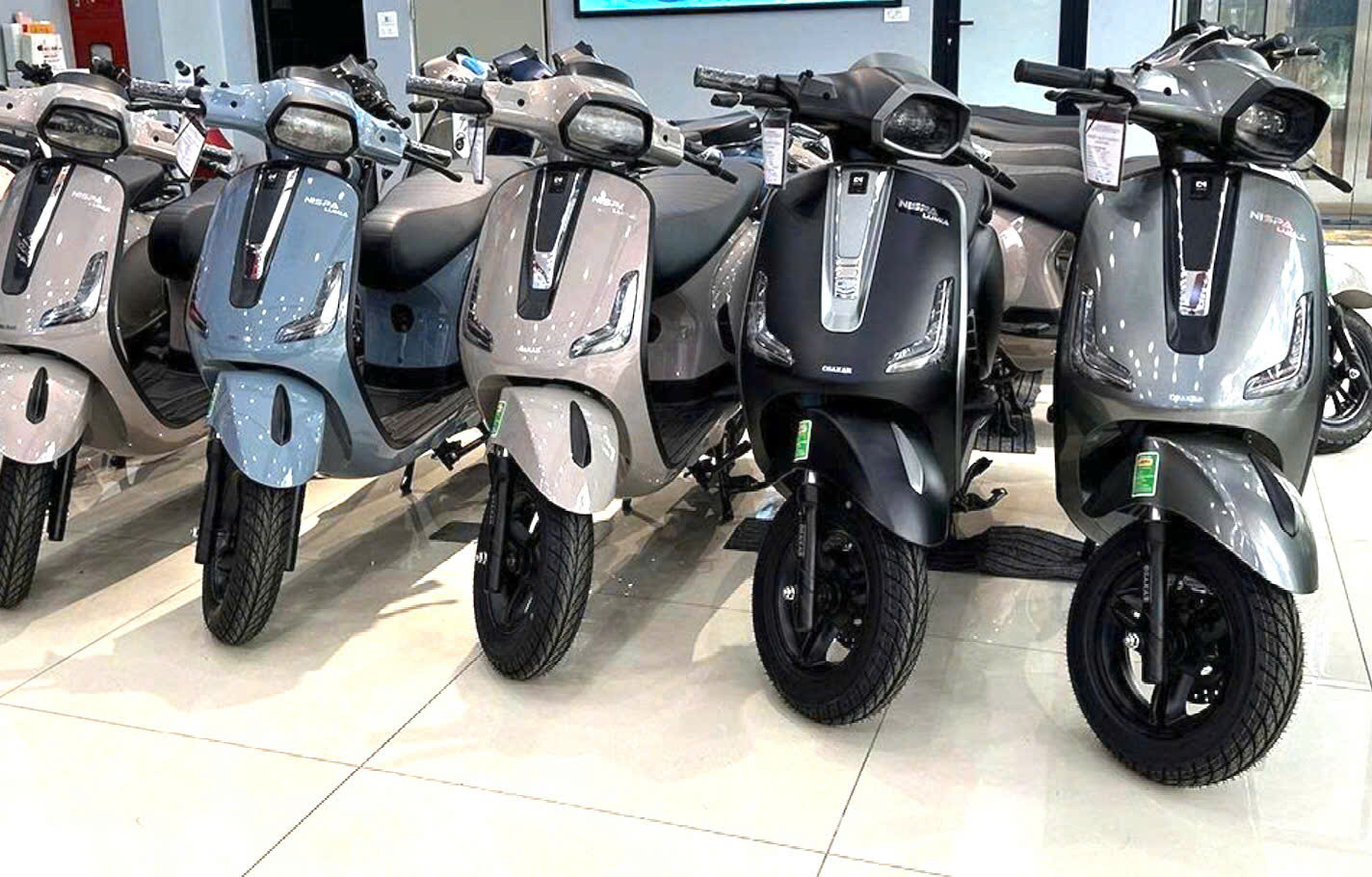The proposal to ban gasoline-powered motorcycles in Hanoi's Ring Road 1 area is seen as a major boost for the electric motorbike market, potentially triggering a surge in demand - if charging infrastructure and battery-swapping services are developed accordingly.
In recent years, Vietnam’s electric motorbike market has undergone a notable transformation, becoming fertile ground for both domestic brands and international giants.
According to preliminary data, there are now around 10 officially distributed electric motorbike brands in Vietnam, including VinFast, Yadea, Pega, DatBike, Detech, Honda, Anbico, Osaka, and DK Bike. Additionally, many smaller brands and imported models from China have entered the market through retail channels.
A wide range of prices, from budget to premium
Electric motorbikes in Vietnam are currently divided into three basic price segments. The budget segment (under VND 20 million or approximately USD 840) mostly includes compact models with top speeds of 40–50 km/h, suitable for students. Popular brands include Anbico, Detech, and DK Bike.
The mid-range segment (VND 20–35 million or USD 840–1,470) captures most of the current consumer demand. Models such as the VinFast Evo, Feliz, Yadea BuyE, and Pega Aura are equipped with lithium batteries and can travel 70–100 km per charge.
The high-end segment (above VND 40 million or USD 1,680) includes models priced as high as VND 70 million (USD 2,940). These typically feature modern designs, durable batteries, and powerful engines with top speeds of 70–90 km/h. Examples include the VinFast Theon, DatBike Weaver++, and imported premium electric models.
It’s worth noting that electric motorbikes are no longer significantly cheaper than their gasoline counterparts. For example, the gasoline-powered Honda Wave Alpha costs about VND 20–23 million (USD 840–970), similar to entry-level electric bikes like DK Bike or Anbico.
Mid-range electric models like the VinFast Feliz 2 (about USD 1,260) are priced similarly to gasoline models like the Honda Vision or Yamaha Janus (USD 1,130–1,470). The high-end VinFast Theon (USD 2,520–2,940) is even more expensive than the gasoline-powered Honda SH Mode (USD 2,395–2,646) and comparable to the SH 125i.
However, electric bikes offer much lower operating costs. A full charge typically consumes about 0.96–1.2 kWh of electricity. At an average electricity price of VND 3,000 (USD 0.13) per kWh, a full charge costs around VND 2,880–3,600 (USD 0.12–0.15). This allows the bike to travel 50–90 km, depending on model. In contrast, a gasoline bike requires VND 30,000–50,000 (USD 1.26–2.10) for a similar distance.
A surge of opportunities and challenges amid urban fuel bans
Market experts note that electric motorbike sales are rising in Vietnam but still account for less than 10% of total motorbike sales. Major hurdles include inadequate charging infrastructure, battery degradation after just 2–3 years, and uneven after-sales services. Battery replacement costs can range from VND 5–15 million (USD 210–630), which remains a concern for many users.
On the positive side, government incentives and city-level commitments to green mobility are driving change. The latest proposal suggests that starting July 1, 2026, Hanoi will ban gasoline motorcycles and mopeds from operating within Ring Road 1. This could mark a major turning point for electric two-wheelers.
Some electric vehicle retailers are already reporting growing consumer interest. Nguyen Van Hung, owner of an EV shop in Cau Giay, said: “If Hanoi seriously bans gasoline bikes in the city center, demand for electric models will definitely explode. But manufacturers must invest in charging and battery services so customers feel confident switching from gas to electric.”
Le Thi Lan, a dealer in Ha Dong, added: “People are still worried about rapid battery degradation and high replacement costs. If there’s support for battery exchanges and a widespread charging network, people will abandon gasoline bikes for sure.”
Other retailers see this moment as both an opportunity and a challenge - pressuring manufacturers to standardize quality and avoid flooding the market with cheap, unsafe electric bikes, as seen in the past.
Vietnam’s electric motorbike market is entering a dynamic phase with dozens of brands and a wide variety of price segments. However, for consumers to truly switch from gasoline to electric, manufacturers must continue improving battery technology, expanding charging networks, and ensuring transparent, reliable after-sales support.
Bao Ngoc
